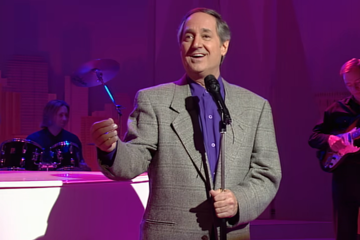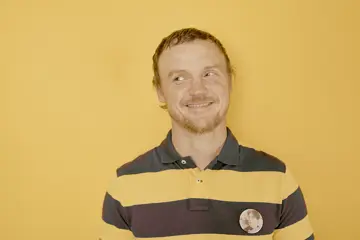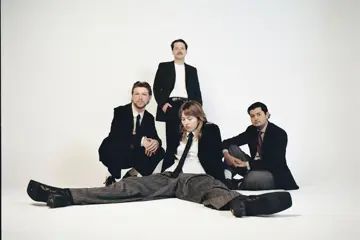On 14 February 2018, the lives of Marjory Stoneman Douglas High School's students changed forever when a disturbed and disenfranchised alum unleashed automatic gunfire on his former classmates. Instead of merely accepting 'thoughts and prayers', a group of students took a stand for tighter gun control in America and the March for Our Lives movement was born. The power of the young in gathering millions of high schoolers, supporters and celebrities across the country in a march on Washington DC became one of the largest protests in American history. In the students' own words, change was within reach.
And while Australia may have mitigated the problem of gun violence, our own issues brood nonetheless. From the Government's treatment of asylum seekers, which has been severely criticised by the UN, the same-sex marriage debate that intensified during the marriage equality vote, and the need for Indigenous rights to be recognised, Australia's youngest generations have become integral in advocating for those who may not have a voice and whose voices are not given an opportunity to be heard.

One such activist is medical student Carrie Lee, who, at 22 years old, co-organised the 'Detention Harms Health' rally, which saw 300 medical students, doctors, nurses and community workers, come together in Sydney's Hyde Park in April to call public attention to refugee health and humanitarian issues on Manus Island and Nauru. After dealing with frustrating responses from the Government's Department of Home Affairs, Carrie and her fellow medical students across NSW decided to collaborate and do something about it.
Dressed in medical scrubs, lab coats and stethoscopes, Lee and her peers (pictured right) became part of a march which included high-profile speakers, including whistle-blowers Professor David Isaacs and Nurse Alanna Maycock. Lee emphasised the determination of young people in their desire for change: "We have been talking about this event since October last year [2017]... And it's been really interesting because it was started by four medical students, who got this kicked up. None of us had ever organised a march before, we were learning each step along the way," Lee says. "My friend, she's out at Wagga Wagga, she was on 17 hour shifts in the week before the march, and she was calling me in the middle of the day, saying, 'I'm so sorry, I'm out of the theatre for two seconds, can I just call you for a minute?', and then going back in. It really says a lot about how resourceful young people can be, and how we are using our position as medical students to try and make a change".
Don't miss a beat with our FREE daily newsletter
Another powerful change-maker is Hannah Wahlsten, who is the 26-year-old Western Australian convenor for Amnesty International's LGBTQI+ Network. She first involved herself with Amnesty trying to build up groups on university campuses, and after five years, she has become an integral part in the fight for LGBTQI+ rights, a major success being the Marriage Equality campaign in 2017.
From rallying, phone banking and encouraging others to sign petitions, Wahlsten (pictured below) spoke about the urgent yet personal implications that activism has for young people. "We are the ones who are going to be inheriting the world, and we need to be the ones that step forward. I think there's a lot of passion in youth... We need it because often, we don't get heard. With Marriage Equality, it directly impacts our lives, especially [for] young people that want to get married, those stepping into relationships or children who have parents who are same-sex."
 And Wahlsten's resolve is undeniable. "Seeing the issues that my community faces and everything that happens, part of my way of not accepting it was saying, 'You know what? I'm going to change it,'" she says, "And especially when you have a win, like we did with marriage equality - there's that belief that you can keep going forward, and keep doing more, and that it is possible for things to change."
And Wahlsten's resolve is undeniable. "Seeing the issues that my community faces and everything that happens, part of my way of not accepting it was saying, 'You know what? I'm going to change it,'" she says, "And especially when you have a win, like we did with marriage equality - there's that belief that you can keep going forward, and keep doing more, and that it is possible for things to change."
But sometimes participating in activism isn't a choice, as 17-year-old Gumbaynggirr woman, Aretha Stewart-Brown will tell you. She may still be in high school studying Year Twelve but, don't let Stewart-Brown's young age throw you. She was a crucial speaker at the Invasion Day march on 26 January 2017. It marked her first real step into the realm of Indigenous rights and recognition activism, but for her, an imperative one. "I didn't see it [the speech] as something that I chose to do. I don't have the privilege being an Aboriginal activist to speak out about these things. I'm born with inherent obligations to care and educate other people about my culture. I didn't wake up and be like, 'You know what sounds really good? Land rights!' It's so intrinsically me that it is really hard to separate my activism and myself."
If that isn't proof enough that Stewart-Brown is born to be a future leader, she was most recently elected as the first female Prime Minister of the National Indigenous Youth Parliament. It's a platform where she can start talking about passing educational reforms she one day hopes become a reality: "I don't believe how we are teaching our history is accurate... I go to any Australian history book, and there's a guy holding a boomerang... And the next 100 pages are white colonial history. That's no way a representation of me in any way."
She urges more young people to raise their voices on social issues they are passionate about. "All young people should be involved in politics, because, if it's just me yelling into a void about Indigenous issues, it breaks you down a little bit. You become that one person, and you have to repeat things over and over to the point where it's exhausting and it's not empowering anymore. So if everyone was getting involved, not only does it help me raise my voice... It also empowers everyone as a community."















